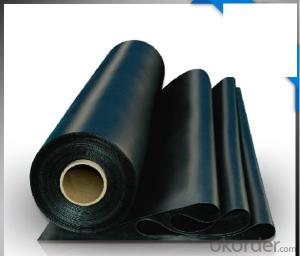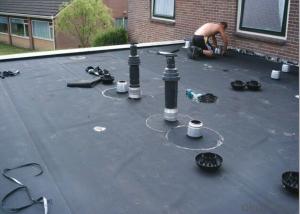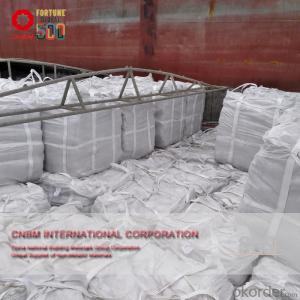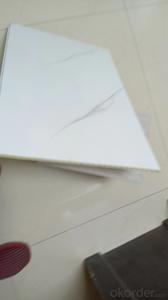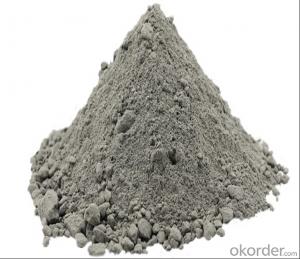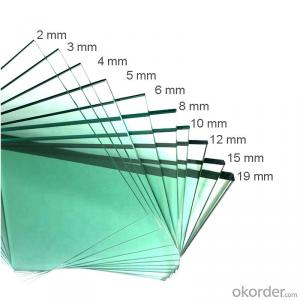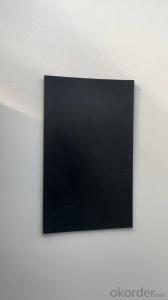EPDM Rubber Roofing Membrane 1.2 mm with Good Quality
- Loading Port:
- China Main Port
- Payment Terms:
- TT or LC
- Min Order Qty:
- 5000 m²
- Supply Capability:
- 100000 m²/month
OKorder Service Pledge
OKorder Financial Service
You Might Also Like
EPDM Rubber Roofing Membrane
EPDM waterproof membrane is made from ternary ethylene-propylene rubber, which is for waterproofing of exposed and non-exposed applications.
Product Applications:
1. Roofs, Basement, Toilets
2. Industrial and civil building waterproofing
3. Geosynthetic liner for swimming pool, channels, irrigation system
4. Especially suitable for projects with high requirements in durability, anti-corrosion and deformation.
Product Features:
1. Excellent physical and mechanical performance
2. High tearing resistance
3. Good deformation adaptability
4. High puncture resistance
5. High aging resistance
6. UV resistance
Product Advantages:
1. High elasticity among high polymer waterproof materialsand becomes a world-popular waterproofing material.
2. Adopts the world-advanced equipment of cold feeding extrusion and continuous vulcanization technology.
Product Specifications:
1. Material: EPDM Rubber
2. Size: 1.2m (width)*20m (length) or customized, weldable type 2.05m or 4m width
3. Thick: 1.2mm, 1.5mm, 2.0mm
4. Type: Vulcanized & Weldable
5. Pattern: Non-reinforced (homogeneous)
6. Certificate: ISO9001/14001
FAQ:
Q: Can I visit your company?
A: Yes, welcome to visit our enterprise.
Q: Can I do the third party testing before loading?
A: Yes, we could accept the third party testing.
Q: Which kind of payment in your company?
A: We could accept TT, LC at sight, etc.
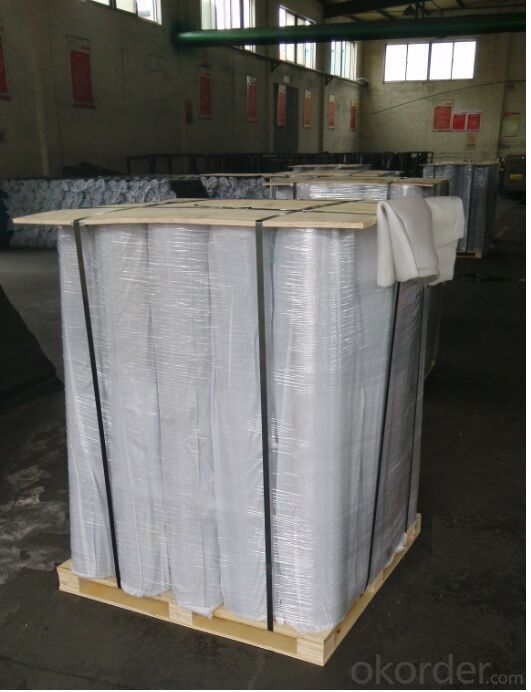
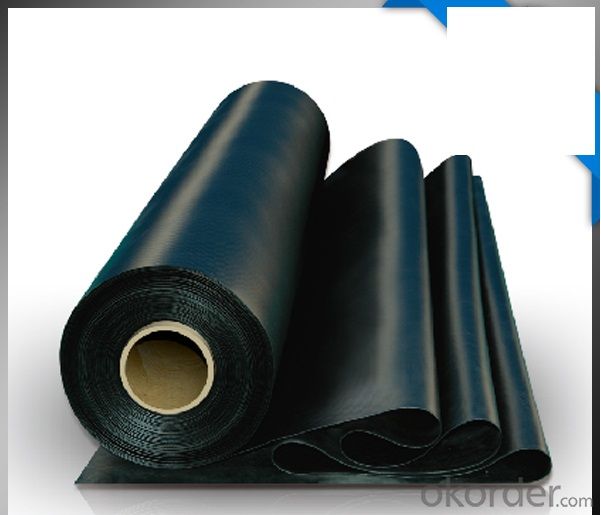
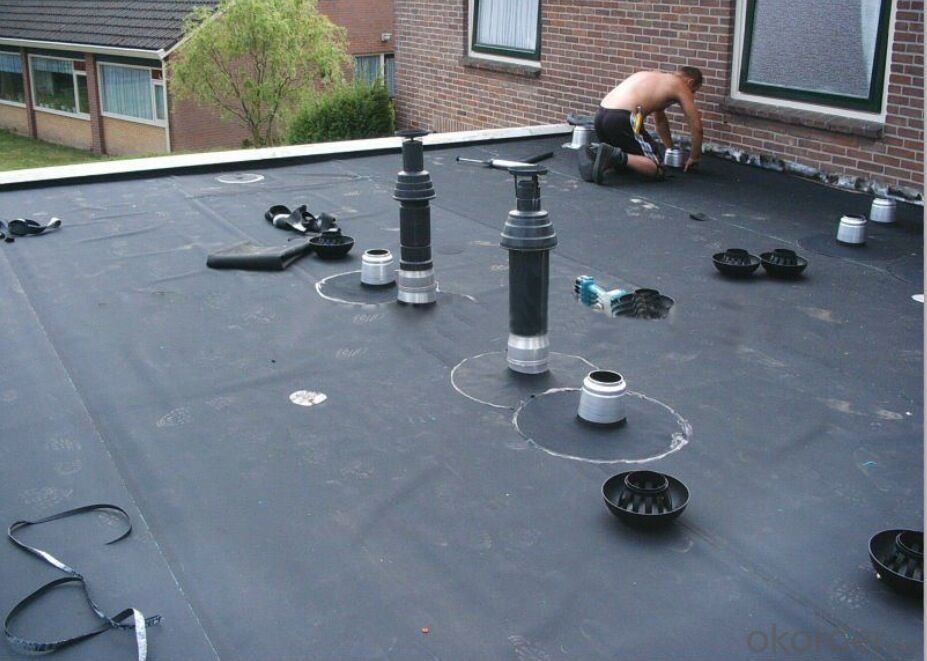

- Q:Can a waterproofing membrane be used on roofs with slope?
- Yes, a waterproofing membrane can be used on roofs with slope. In fact, it is often recommended to use a waterproofing membrane on sloped roofs to prevent water infiltration and to ensure proper drainage. The membrane is installed beneath the roofing material and acts as a barrier against moisture, helping to protect the roof and the underlying structure from water damage.
- Q:Can a waterproofing membrane be used for a foundation wall?
- A foundation wall can indeed utilize a waterproofing membrane. It is highly advisable to employ such a membrane to shield the foundation against water infiltration and moisture-related harm. Typically, this membrane is applied on the outer side of the foundation wall, serving as a barrier to prevent water from penetrating. Its design entails flexibility, durability, and resistance to hydrostatic pressure, thereby ensuring long-lasting protection for the foundation. Moreover, the membrane aids in preventing water from seeping into the basement or crawl space, thereby decreasing the risk of mold, mildew, and structural problems. Ultimately, employing a waterproofing membrane for a foundation wall is an effective means of safeguarding the building's foundation, guaranteeing its integrity and longevity.
- Q:Can waterproofing membranes be used on concrete surfaces?
- Concrete surfaces can indeed benefit from the use of waterproofing membranes. These membranes are specifically designed to create a barrier against water penetration. They are often employed on concrete surfaces to safeguard them against water damage. Typically, these membranes are composed of rubber, PVC, or bitumen and can be applied to the concrete surface either in a liquid or sheet form. Once applied, the membrane forms a strong and continuous waterproof layer that effectively prevents water from seeping into the concrete. This proves to be particularly advantageous in areas that frequently come into contact with water, such as basements, bathrooms, or outdoor concrete structures. By preventing water-related issues such as cracking, spalling, or mold growth, waterproofing membranes effectively prolong the lifespan of concrete surfaces.
- Q:Can waterproofing membranes be used on metal flashing?
- Waterproofing membranes have the capability to be utilized on metal flashing. These versatile membranes can be employed on various surfaces, including metal. Metal flashing is frequently utilized in construction to safeguard against water damage by diverting water away from vulnerable areas like roofs, windows, and doors. Adding a waterproofing membrane to the metal flashing provides an extra layer of defense against water infiltration, ensuring the flashing remains watertight and prevents any leaks or water damage. Furthermore, waterproofing membranes are usually flexible and can adhere to different surfaces, such as metal, making application easy and waterproofing effective.
- Q:Can a waterproofing membrane be used on masonry surfaces?
- Yes, a waterproofing membrane can be used on masonry surfaces. In fact, applying a waterproofing membrane on masonry surfaces is a common solution to prevent water infiltration and damage. Masonry surfaces such as concrete, brick, or stone are porous and can absorb water, which can lead to structural damage, mold growth, and deterioration over time. A waterproofing membrane acts as a barrier, preventing water from seeping into the masonry and protecting it from moisture-related issues. It is important to choose a waterproofing membrane that is specifically designed for masonry surfaces and follow the manufacturer's instructions for proper application.
- Q:How to distinguish the degree of sbs waterproofing membrane?
- Method 3: If you do not want to send the laboratory, you can do the test in the refrigerator, as long as the refrigerator can meet the requirements of low temperature on the line. Method to refer to GB 18242 (2008) "elastomer modified asphalt waterproofing membrane". This method can only know the approximate situation of the coil.
- Q:Can a waterproofing membrane be applied on both interior and exterior surfaces of a structure?
- Yes, a waterproofing membrane can be applied on both interior and exterior surfaces of a structure.
- Q:Can a waterproofing membrane be used for swimming pools or water features?
- Yes, a waterproofing membrane can be used for swimming pools or water features. Waterproofing membranes are specifically designed to prevent water leakage and are commonly used for various applications, including swimming pools and water features, to ensure they remain watertight and durable.
- Q:Are waterproofing membranes resistant to diesel fuel?
- Typically, diesel fuel is not resisted by waterproofing membranes. Being a petroleum-based substance, diesel fuel can harm various types of waterproofing materials. The membrane's integrity can be degraded, reducing its ability to prevent water from penetrating. Consequently, it is crucial to avoid exposing waterproofing membranes to diesel fuel since it can compromise their effectiveness and durability. If there is a chance of diesel fuel coming into contact with the membrane, it is advisable to employ extra protective measures like chemical-resistant barriers or a secondary containment system to avert any potential harm to the waterproofing membrane.
- Q:Are waterproofing membranes resistant to seawater?
- Yes, waterproofing membranes are resistant to seawater. These membranes are designed to provide a barrier against water and are specifically engineered to withstand the harsh conditions of seawater. They are made from materials that are highly resistant to saltwater corrosion and are tested to ensure their effectiveness in preventing water penetration, including the corrosive effects of seawater. This makes waterproofing membranes an ideal choice for applications where seawater exposure is a concern, such as in marine structures, coastal buildings, and swimming pools.
1. Manufacturer Overview |
|
|---|---|
| Location | |
| Year Established | |
| Annual Output Value | |
| Main Markets | |
| Company Certifications | |
2. Manufacturer Certificates |
|
|---|---|
| a) Certification Name | |
| Range | |
| Reference | |
| Validity Period | |
3. Manufacturer Capability |
|
|---|---|
| a)Trade Capacity | |
| Nearest Port | |
| Export Percentage | |
| No.of Employees in Trade Department | |
| Language Spoken: | |
| b)Factory Information | |
| Factory Size: | |
| No. of Production Lines | |
| Contract Manufacturing | |
| Product Price Range | |
Send your message to us
EPDM Rubber Roofing Membrane 1.2 mm with Good Quality
- Loading Port:
- China Main Port
- Payment Terms:
- TT or LC
- Min Order Qty:
- 5000 m²
- Supply Capability:
- 100000 m²/month
OKorder Service Pledge
OKorder Financial Service
Similar products
New products
Hot products
Related keywords
